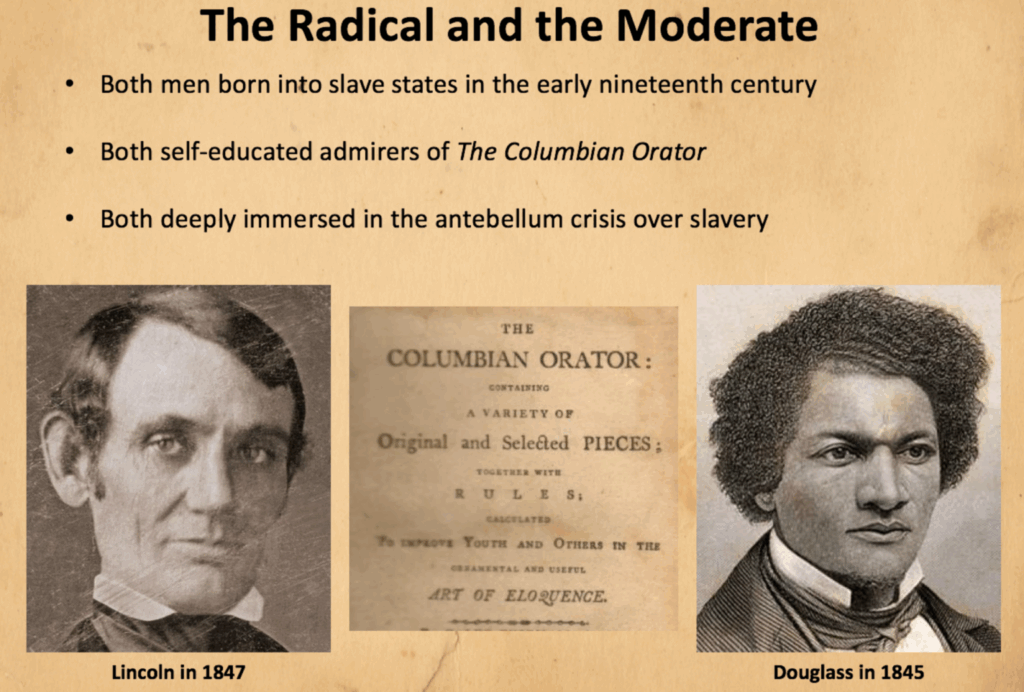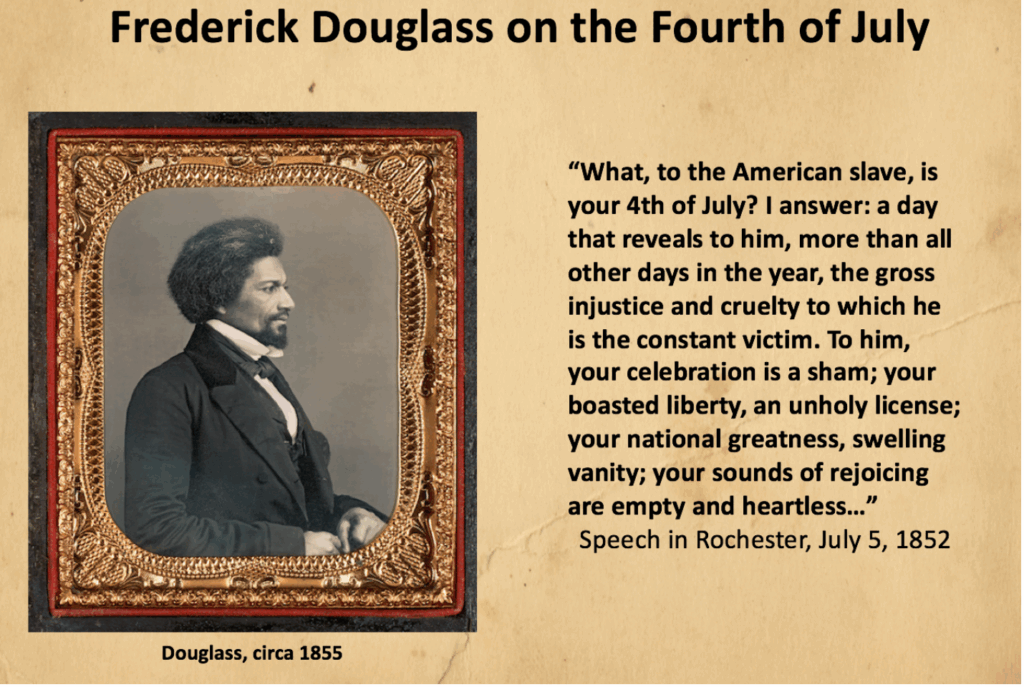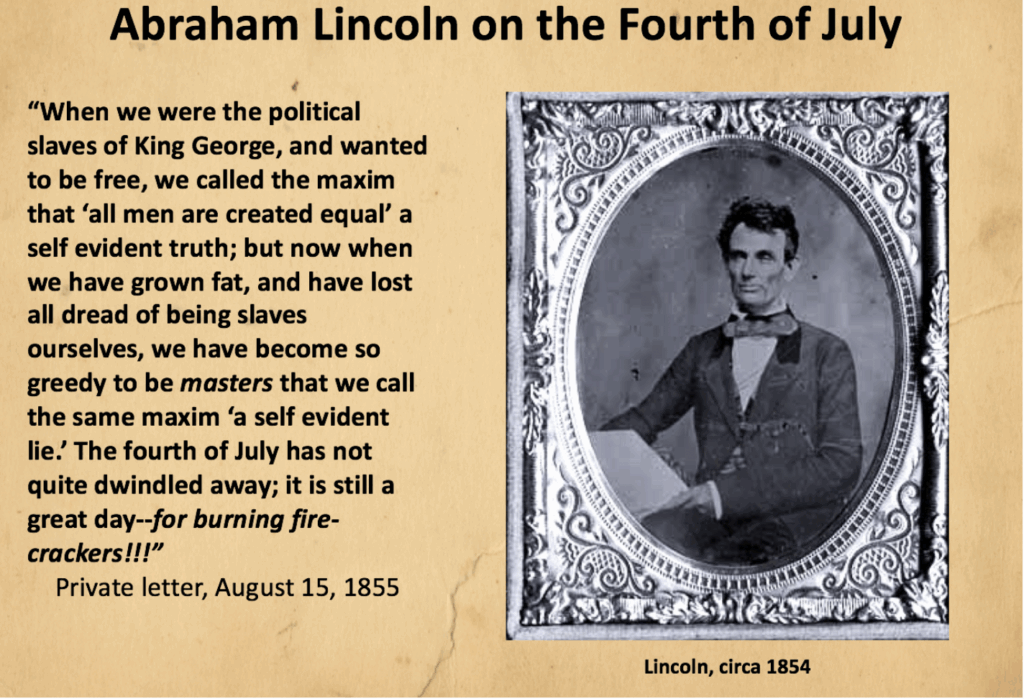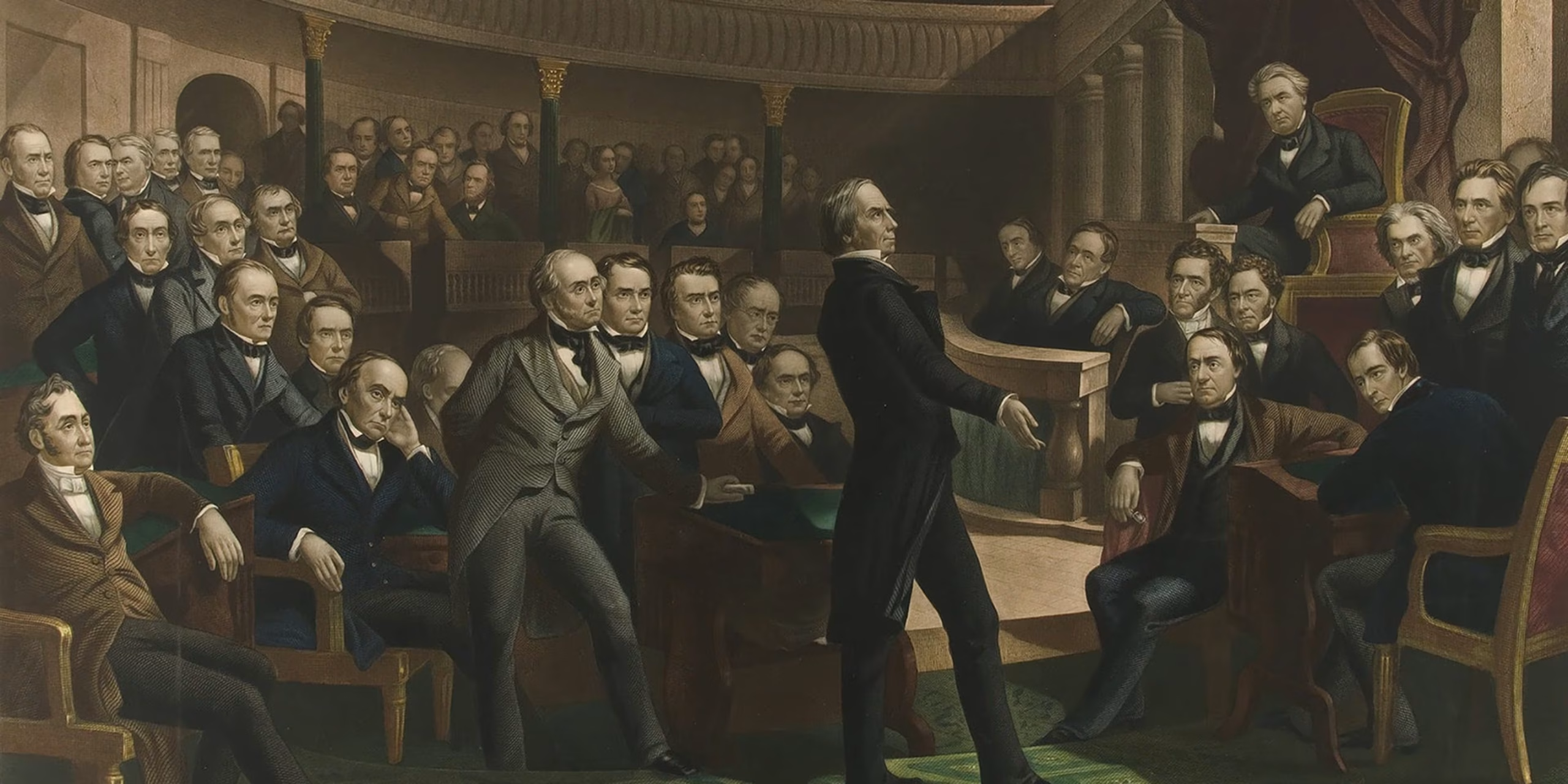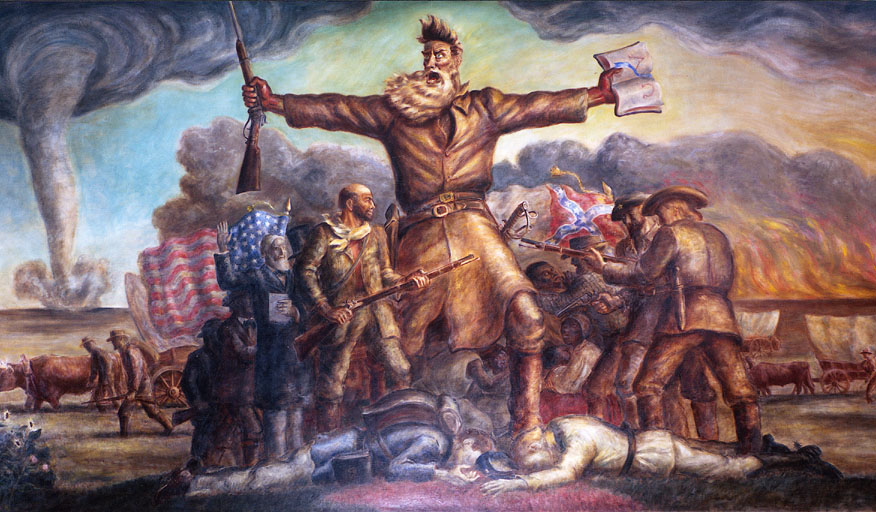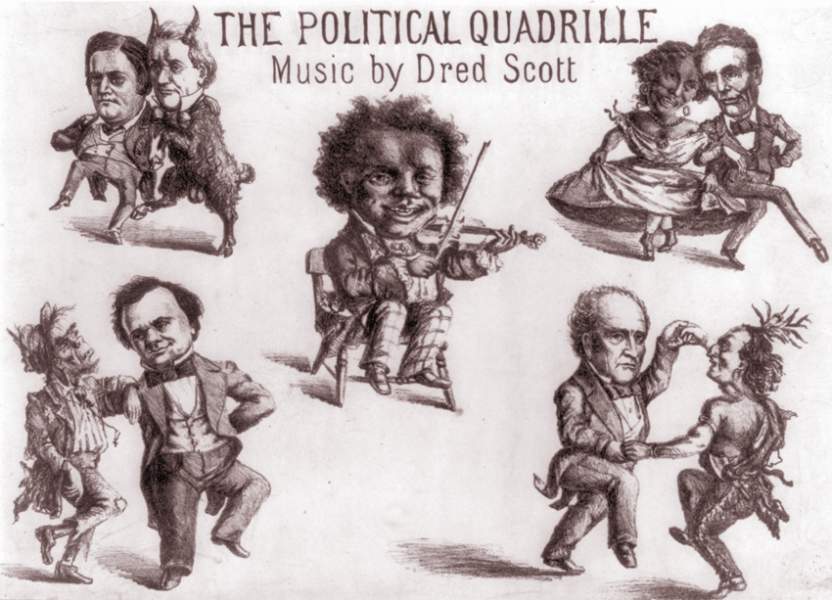Our political problem now is “Can we, as a nation, continue together permanently–forever–half slave, and half free?” The problem is too mighty for me. May God, in his mercy, superintend the solution. —Abraham Lincoln, August 15, 1855
Lincoln, Douglass, and Self-Made Men
Lincoln’s Light vs. Douglass’s Fire
Abraham Lincoln and the Promise of the Declaration of Independence
Sectional Crisis
Why was the emergence of the Republican Party such a pivotal factor in the polarization of the nation’s sectional crisis over slavery? The answer lies in part with the democratic dilemma –can majorities decide moral questions?
- Compromise of 1850
- Kansas-Nebraska Act of 1854
- Dred Scott v. Sandford (1857)
“A house divided against itself cannot stand.” I believe this government cannot endure, permanently half slave and half free. I do not expect the Union to be dissolved—I do not expect the house to fall—but I do expect it will cease to be divided. It will become all one thing, or all the other. —Abraham Lincoln, June 16, 1858
Lincoln and the Republicans as “constitutional abolitionists”

